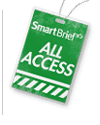|
|
 | Creating fluent readers
Reading fluency -- the ability to develop control over surface-level text processing -- is crucial to becoming a successful reader who can understand the deeper meaning embedded within texts, says Timothy Rasinski of Kent State University. According to Rasinski, reading fluency has three dimensions: accuracy in word decoding, automatic processing and prosodic reading. He offers tips on assessing readers based on these dimensions, and explains why teachers shouldn't emphasize speed over meaning. Educational Leadership (March 2004)
 |
 | Report suggests 15 elements for improving skills
A report published by the Carnegie Corporation of New York and the Alliance for Excellent Education outlines 15 key elements for improving middle- and high-school literacy achievement. The report was based on the notion that schools needed to do more to promote literacy development among middle- and high-school students. Its authors, Gina Biancarosa and Catherine Snow of Harvard University, recommend schools try out different combinations of the elements to find out what works best. Click here to read the full report.
 |
 | Reading and literacy resources:
Education Commission of the States
Education Week
U.S. Department of Education
International Reading Association
 |
 |  |  |
 | Instruction and Assessment |  |
|  |
 |
 |
|
 | Ten myths of reading instruction
Some argue learning to read is a natural process, but the Southwest Educational Development Laboratory says that's just one of the 10 myths surrounding reading instruction. What are the others? Click here to read the report.
 |
 | Teachers work to boost high schoolers' literacy
A little-discussed key cause of underachievement in high schools is students' inability to understand their textbooks. To address the problem, teachers across all subject areas are taking steps to ensure students comprehend the vocabulary and content of the passages they read. U.S. News & World Report (2/28)
 |
 | Literacy expert discusses instruction
Catherine Snow, a literacy expert at the Harvard Graduate School of Education, talks about why literacy instruction in preschool and kindergarten is important in academic development. Harvard Education Letter (8/2005)
 |
| |  | The importance of informational texts: Nell K. Duke of Michigan State University argues that elementary schools should expand reading instruction for K-3 children to cover informational texts such as magazines. Such texts are crucial to success in school, and exposing children to comprehension strategies at an early age is crucial, Duke says. Educational Leadership (March 2004)
 |
 | U.K.'s "literacy hour" a success
Education Next finds that Britain's "literacy hour," a formal daily reading and writing program for children ages 5 to 11 in selected schools, significantly boosted reading and English scores of all students, especially boys. The authors conclude long-term benefits of the program are cost-effective compared with reducing class sizes or raising teachers salaries. Education Next (Summer 2005)
 |
 | English learners require time, patience
English learners generally pick up basic elements of the language quickly, but the process of learning English well takes years, studies have shown. But if schools are patient the payoff can be huge -- English learners who master the language are less likely to drop out of high school and are more likely to matriculate to college, according to statistics. This article discusses some of the issues associated with teaching students to learn English, as well as some basic teaching strategies. American School Board Journal (8/2005)
 |
| |  | Researchers favor bilingual approach in review of ELL studies: A review of studies on ELL instruction methods by Robert E. Slavin of Johns Hopkins University and Alan Cheung of the Success for All Foundation found that bilingual approaches appear to be more effective than immersion programs. The researchers also found that ELL students benefited most from comprehensive programs using phonics, small group tutoring and cooperative learning. Click here to read the paper.
 |
 | Opinion: Phonics is the wrong approach for older readers
Instruction in phonemic awareness and phonics does not help struggling older readers read better and it does not encourage them to read more, according to Gay Ivey and Marianne I. Baker of James Madison University. A better approach is giving students books they can make sense of and helping them make sense of the text by explaining the process of reading, Ivey and Baker say. Schools must also ensure that teachers get plenty of time with individual students and small groups, they add. Educational Leadership (March 2004)
 |
| |  | Opinion: Return to phonics would aid Canadian literacy: Ontario reading tutor Malkin Dare says a return to traditional phonics instruction would improve all literacy skills. She believes research shows overwhelmingly that the balanced literacy approach, now used in Canadian schools, is ineffective for many students, particularly disadvantaged children and boys. The Toronto Star (5/24)
 |
 | Strategies for promoting literacy among children with special needs
Children with special needs present a unique challenge to teachers trying to promote literacy among all students. This report commissioned by the Ontario (Canada) Ministry of Education offers a set of strategies for teaching literacy AK-6 students with special needs. The report covers ways to develop individual learning profiles, assessment and evaluation techniques and professional development for teachers.
 |
| |  | NCLB puts focus on special ed: The No Child Left Behind Act has put the spotlight on special education students' reading skills by requiring all students to score at the proficient level on reading tests by 2014. The law has touched off a debate between those who say it's unfair to require students with special needs to meet the such ambitious goals and those who argue high expectations are a must. Education Week (1/8)
 |
 | Harry Potter may not be answer to literacy problem
Many educators are thrilled the Harry Potter series has hooked so many children, but some struggling readers are turned off by the books' hefty size, advanced vocabulary and fantasy elements. For those students, librarians say less-complex works like the Lemony Snicket series, graphic novels and even Japanese comics, offer easier entry to the world of literature. U.S. News & World Report (7/25)
 |
| |  | Why Johnny hates to read: Many educators worry that boys are falling dangerously behind girls in literacy, but there's little consensus as to how to resolve the problem. Some experts say teachers have to reassess what "good reading" means, given that boys often prefer nonfiction stories, informational books, magazines and newspapers. The Washington Post (3/15)
 |
| |  | Schools add contemporary authors to reading lists: Many schools are expanding their reading lists beyond the traditional "dead white male" books to include novels written by contemporary authors. Proponents of the trend say it's often easier for today's students to identify with non-classics, which in turn makes them more engaged in classroom discussions. Some experts caution that broadening the scope of a reading list should be done with care, as it is essential students read quality books. The Boston Globe (free registration) (5/22)
 |
 |  |  |  |  |
 |
 |  |  |
 |
|  |  |
 | |
| |  |
 | |
Develop a solid literacy foundation for your students with the PLATO® Focus Reading and Language Program.
From prevention to intervention classrooms, PLATO Focus can help build reading proficiency. Teachers like Roz Craig at Hopatcong Burroughs Schools, NJ, have successfully raised student reading levels using PLATO Focus: "The beauty of the program is the ability to modify delivery. This is what makes it work in traditional classrooms, inclusion classrooms, and special education programs." Find out how PLATO Learning can help you find similar success at your school. Visit: www.plato.com
| |  |
 | |
| |  |
 |
 |
|
 |  |  |
|
|
 | Group offers guide to professional development
Well-prepared teachers are the most crucial element in the fight against illiteracy. The Learning First Alliance's "Every Child Reading: A Professional Development Guide" outlines the characteristics of effective staff development programs and recommends steps schools can take to make their programs better. The report calls for a shift away from one-session workshops and toward methods focused on evidence for student learning and solutions for insufficient progress. It also calls for the creation of a culture of continuous learning by all school staff.
 |
 | Report calls for better professional development
A report by RAND and written by Harvard University's Catherine Snow said the federal government must devote more attention to helping teachers develop the skills necessary to promote reading comprehension and to deal with students of varying abilities. The report also urged the development of thorough assessment methods designed to inform teachers' instructional decisions and to identify students who need additional help.
 |
 | Survey: ELL teachers lack development opportunities
California teachers surveyed by the Center for the Future of Teaching and Learning in Santa Cruz, Calif., said they did not have an adequate level of professional development opportunities and that they were ill-equipped to deal with the rapid influx of English Language Learner students. Teachers also said professional development seminars often were poorly planned and that much of the information presented in seminars was not appropriate or helpful for teaching ELL students. Center for the Future of Teaching and Learning (July 2005)
 |
 |  |  |
|
|
 | Experts share thoughts on reading and literacy
ASCD SmartBrief asked reading and literacy experts to share their thoughts about the importance of literacy and best practices for reading instruction and assessment.
 |
| |  | Gay Ivey: Curriculum should be relevant to students' lives: Gay Ivey, an associate professor of reading education at James Madison University in Harrisonburg, Va., talks about the differences between childhood and adolescent literacy, the importance of collaboration and peer coaching among teachers and strategies for encouraging adolescents to read. Ivey, co-author of the Educational Leadership article "Phonics Instruction for Older Students? Just Say No" and the forthcoming book "Literacy in the Secondary School: Teaching All Students to Read, Write, and Think," had this to say about getting students motivated to read:
"Part of the problem may be that while we have developed some sound strategies, we have not taken a close enough look at what we ask students to read and how we can use literacy to link the curriculum with students' lives. We know that good reading materials are the key to motivation to read, but grade-level textbooks and whole-class novels are still commonplace in most schools. We also know that students will connect with school learning more if they can see some relevance for it in their own experiences."
Click here to read the full interview with Gay Ivey.
 |
| |  | Karen Tankersley: Readers must learn to extract meaning from text: Karen Tankersley, author of ASCD-published books, "Literacy Strategies for Grades 4-12: Reinforcing the Threads of Reading" and "The Threads of Reading: Strategies for Literacy Development," discusses tactics for helping students unlock meaning in texts and explains the six fundamental, interlocking elements of reading. She had this to say about enhancing reading skills among struggling readers:
"Struggling readers often do not know how to make sense of text so when they lose meaning, they often simply give up and quit reading. One of the most important things that we can do for them is to teach them strategies to use when comprehension breaks down or they come to words they don't know. By teaching students specifically what to do in these instances, we can give them some incentives to continue to attend to the text rather than give up."
Click here to read the full interview with Karen Tankersley.
 |
 |  |  |
|
|
 | Books, videos and other resources on reading and literacy from ASCD:
Books:
Videos:
Other resources:
 |
 |  |  |
|  |  |  |

Product announcements appearing in SmartBrief are paid advertisements and do not
reflect actual ASCD endorsements. The news reported in SmartBrief does not necessarily
reflect the official position of ASCD.
|





